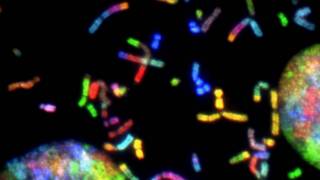Metastatic Pancreatic Cancer Study Survival Rate Doubles

A clinical-stage immunotherapy company today announced positive phase 2 results in its metastatic pancreatic cancer clinical study in third-line or greater subjects showing that the overall survival (OS) rate for patients continues to be double compared to historical survival rates after two or more prior lines of therapy.
This news from ImmunityBio, Inc. is essential since pancreatic cancer is the fourth leading cause of cancer-related death (8.2%), with the five-year survival rate for late-stage cases being just 3%.
The poster presented that the baseline median CA 19-9 level (a marker of metastatic pancreatic disease) of the enrolled subjects (N=83) was very high at 4120 IU/ml, a significant increase from normal levels of 40 IU/ml.
In the QUILT-88 study, subjects with CA 19-9 levels less than 4120 IU/ml (N=40), the median OS was 6.9 months (95% CI: 5.7,10.9).
"We are encouraged by the positive results in these patients with 3rd, 4th, 5th, and even 7th line advanced pancreatic cancer and the considered and helpful feedback from the FDA," commented Patrick Soon-Shiong, M.D., Executive Chairman and Global Chief Scientific and Medical Officer at ImmunityBio, in a related press release on January 19, 2023.
"Treatments for pancreatic cancer in the advanced setting remain an unmet need.
"We are committed to confirming our hypothesis that orchestrating the innate and adaptive immune system will advance the care of these patients."
This Phase 2, randomized, three-cohort, open-label study evaluates the comparative efficacy and overall safety of standard-of-care chemotherapy versus low-dose chemotherapy combined with PD-L1 t-haNK, Anktiva (N-803), and aldoxorubicin in subjects with locally advanced or metastatic pancreatic cancer (NCT04390399).
Each treatment setting and first- and second-line or later maintenance treatment is evaluated independently as Cohorts A, B, and C, respectively, with Cohorts A and B having independent experimental and control arms.
The current preferred treatment options for pancreatic cancer are surgery and subsequent adjuvant chemotherapy writes Cancer.org.
Chemo drugs for pancreatic cancer can be given into a vein (IV) or by mouth as a pill. Often, a slightly larger and sturdier IV is required to give chemo.
However, for most patients with an advanced pancreatic disease, treatment typically consists of chemotherapy alone or supportive care for metastatic patients and chemotherapy with or without radiation for those with locally advanced disease.
These positive results were presented at the American Society of Clinical Oncology Gastrointestinal conference by the ImmunityBio team on January 19-21, 2023.
Disclosures: The authors were Tara Elisabeth Seery, Chaitali Singh Nangia, Phillip D. Reid, Bruno Fang, Heidi Ann McKean, Leonard S. Sender, Sandeep K. Reddy, and Patrick Soon-Shiong. And the sponsoring organizations included Hoag Cancer Center, Astera Cancer Care, Avera Medical Group Oncology and Hematology, and ImmunityBio, which funded the phase 2 study.
Update: Headline edited on Jan. 24, 2023.
Our Trust Standards: Medical Advisory Committee
















